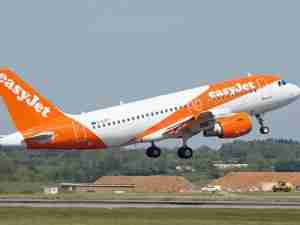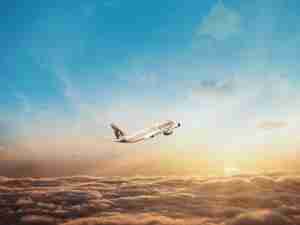HNA-Backed Virgin Australia Eyes China Hubs to End Losing Streak
By: | Jul 27 2017 at 07:03 PM | Air Cargo
Virgin Australia Holdings Ltd., the airline part-owned by HNA Group Co., aims to add two routes to mainland China to tap into the Chinese backer’s aviation hubs and the record flow of visitors heading Down Under.
In an interview in Sydney, Chief Executive Officer John Borghetti mapped out a plan over the next five years to take advantage of carriers owned by or affiliated to HNA, which include Haikou-based Hainan Airlines, Tianjin Airlines and Kunming-headquartered Lucky Air.
“Connectivity in China is important,” said Borghetti, 61, who is halfway through a three-year turnaround plan that aims to end a streak of losses. “If you can tap into two hubs where their airlines feed, that gives you a big advantage.”
As well as adding daily flights to those hubs, which Borghetti wouldn’t name, Virgin Australia will also probably fly to one more port city in Asia within five years, he said. There are no plans to fly to Europe, the Middle East—even though Etihad Airways PJSC is a major shareholder—or extend Virgin Australia’s reach beyond Los Angeles in the U.S., he said.
HNA, which has announced more than $40 billion of deals since the beginning of 2016, last year acquired about 19 percent of Virgin Australia. China’s Nanshan Group, Etihad and Singapore Airlines Ltd. own similar-sized stakes in the Brisbane-based carrier, a shareholding structure almost unheard of among modern-day airlines.
Borghetti’s vision to build Virgin Australia’s Chinese business around HNA’s assets comes as the Chinese conglomerate’s ownership and some of its purchases come under heightened scrutiny. Its holdings include stakes in Hilton Worldwide Holdings Inc. and Deutsche Bank AG.
Chasing China
About 487 million people few to, from and within China in 2015, and that figure is set to almost double by 2025, according to forecasts by the International Air Transport Association. Australia attracted an unprecedented 1.2 million Chinese visitors last year, representing 10-year growth of 284 percent, according to government data.
Virgin Australia’s bigger domestic rival, Qantas Airways Ltd., is already chasing China traffic. In January, Qantas resumed its first services to Beijing from Sydney since the route was axed after the financial crisis. Qantas has a partnership with China Eastern Airlines Corp. Virgin Australia this month started its first flights to Hong Kong, from Melbourne.
Virgin Australia’s shares are down about 26 percent this year and are trading near a record low, valuing it at A$1.48 billion ($1.2 billion). Qantas, which has delivered record profits amid its own three-year turnaround plan, has gained 61 percent year to date.
Analysts expect Borghetti to report a fifth consecutive annual loss at Virgin Australia next month. His transformation program includes cutting the cost of everything from catering to maintenance, simplifying the fleet and pushing back delivery of Boeing Co. 737 jets.
“We’re making very good progress,” Borghetti said, declining to give more details before the airline’s full-year results.
Borghetti also declined to elaborate on any potential delisting of Virgin Australia, following media speculation in May that a buyout by shareholders or management was all but inevitable within 12 months. Virgin’s free float - the proportion of shares available to change hands on the market—is only 8.6 percent, according to Bloomberg data.
“That’s a shareholder issue,” Borghetti said. “I just want to run the company whatever form it takes.”










